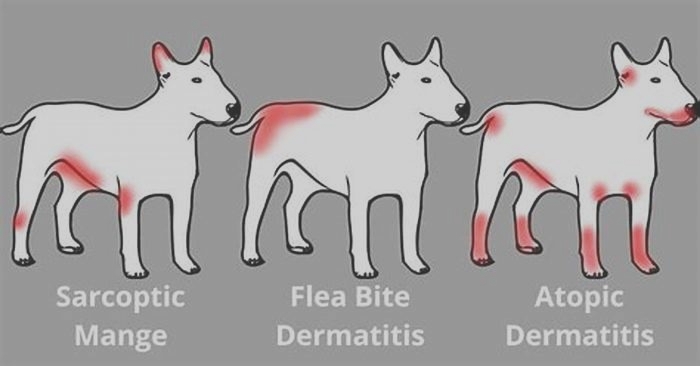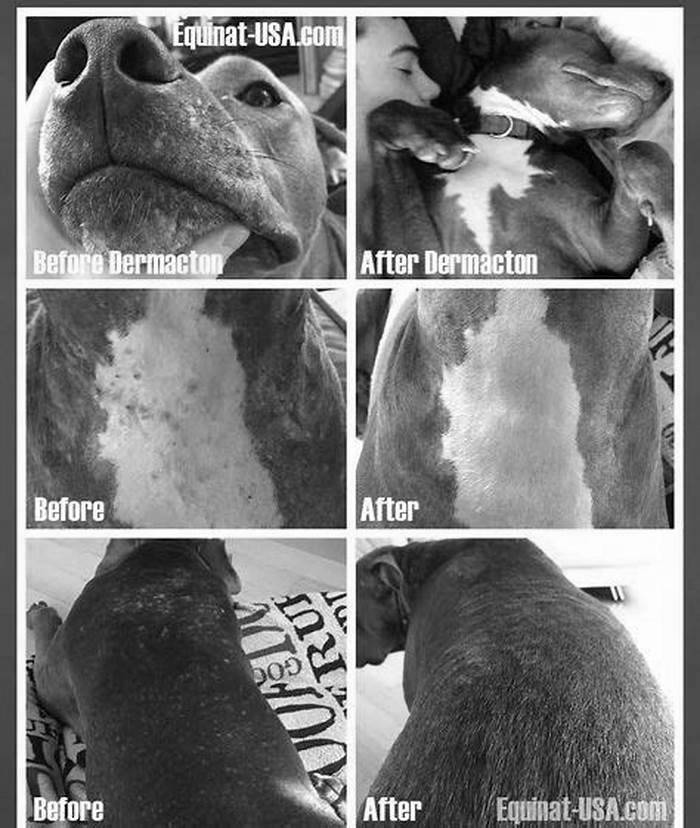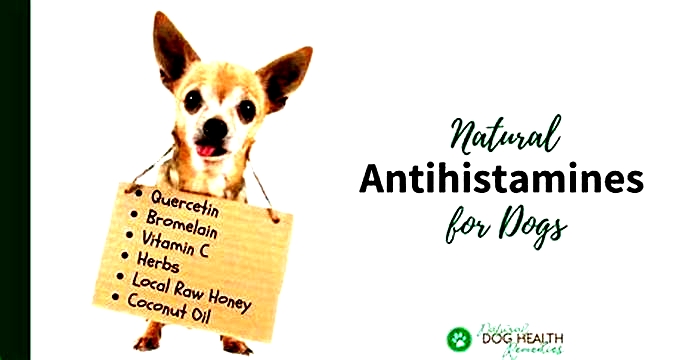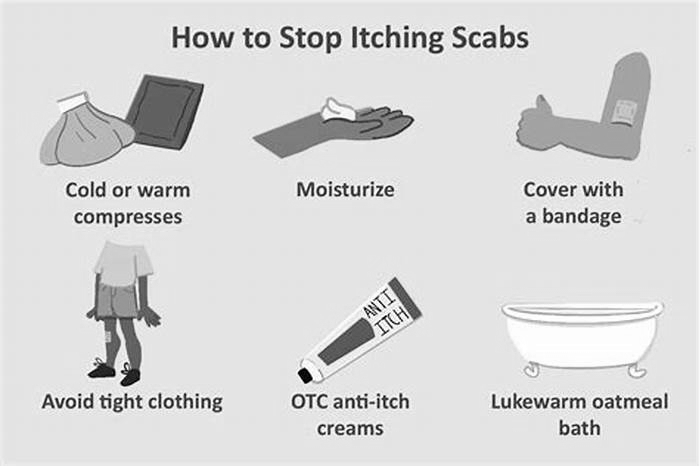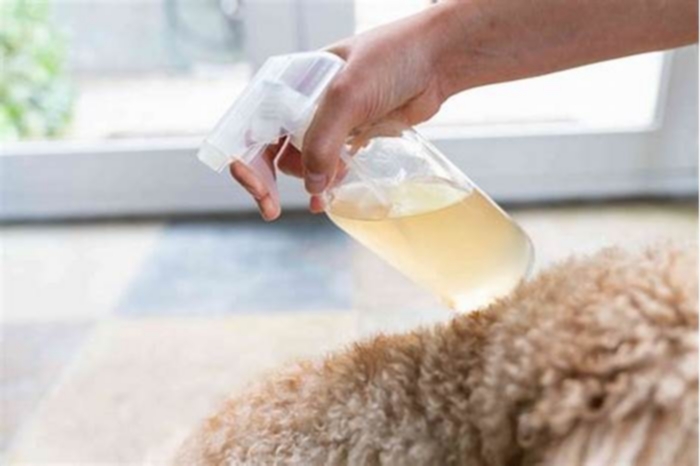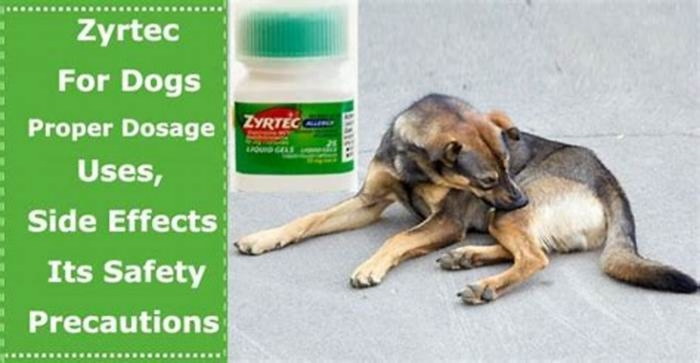Will coconut oil stop my dog from itching

How to Use Coconut Oil for Your Dogs Itchy Skin

A common problem from which dogs suffer is itchy skin. There are many potential causes of this, and it is distressing to watch your dog in discomfort. You will want to help your dog relieve the itchiness as soon as possible. Although there are many different products available for this, a natural option is coconut oil. Here is what you need to know about relieving a dogs itchy skin using coconut oil.
What Causes Itching?
There are many reasons why dogs can suffer from itchy skin. One of the most common problems is an allergy. This could be an allergy to food or a seasonal allergy that is caused by specific pollens. Hot spots are another common cause of itching in dogs. If a hot spot is not treated, the dog will bite and scratch at it until they have caused an open wound that often becomes infected. Therefore, it is essential that a hot spot is treated quickly. Bites can also lead to irritation and itchy skin.
Why Use Coconut Oil for a Dogs Itchy Skin?
Natural virgin coconut oil has many properties that are beneficial for common skin problems in both humans and dogs. Some of these properties include antibacterial, antiviral, antiprotozoal, and antimicrobial properties. These properties mean that is will reduce fungus and yeast when they contact the skin, It also means it is the ideal natural solution for cracked paws, hot spots, abrasions, dermatitis, and other forms of irritated skin.
Virgin coconut oil is a completely natural product as it is taken directly from the coconut flesh and not extracted using any chemical processes. Unlike many manufactured products available for dogs, virgin coconut oil contains no harmful substances or ingredients that could potentially cause further irritation. Coconut oil is rich in lauric acid, which is a medium-chain fatty acid. Usually, these acids are found in the milk of mammals and its purpose is to give the immune system a boost. For this reason, coconut oil is excellent for treating both viral and bacterial infections.
Furthermore, coconut oil is not just good for the skin as it can benefit the internal functions of the body, too. It can soothe stomach upsets and digestive problems if it is given orally. Another benefit of using coconut oil is that it can condition your dogs fur and give them a glossy coat.
How to Use Coconut Oil for Your Dogs Skin
You can use coconut oil to treat your dog in several ways. One of the easiest is to pour a little onto the palm of your hand and rub it into your dogs coat. Then, give their coat a brush to disperse the oil before rubbing any remaining oil into your own hands for a softening effect. Similarly, you can run a little oil directly onto affected areas, such as a hot spot, for direct treatment. Coconut oil can also be given orally to your dog, although you should check with your vet before introducing anything new into their diet. Start by drizzling around a quarter of a teaspoon of the oil over their food. You can then gradually increase this to around half a teaspoon once or twice a day.
A further use for coconut oil is to use it as a decoy to give your dog any medication they have been refusing to take. When coconut oil is cooled to lower than room temperature, it solidifies a little. You can roll little balls of the oil around your dogs pills to disguise them.
Creating Tasty Treats
Introducing a little coconut oil into your dogs diet can work as a preventative measure and not just a cure. You can do this by creating tasty doggy treats for your pet using natural ingredients that are safe for them to eat and including a little coconut oil. One simple recipe is as follows:
- 2 cups quinoa, spelt, or oat flour
- 1/3 cup of coconut oil
- 3 tbsp organic pureed pumpkin or apple sauce
- 2 tbsp peanut butter
- 1 tsp vanilla extract
- I tsp organic honey
- tsp cinnamon
Combine all the ingredients, except the flour, and then gradually introduce the flour cup at a time until you have created a firm mixture. Divide the mixture to create small balls that are approximately the size of a meatball. Refrigerate the treats on a plate for at least one hour before giving one as a treat to your dog.
Coconut Oil for Dogs: Is it Really Good for Them?
Coconut oil has become a popular supplement for people. In humans, some evidence suggests that consuming coconut oil in limited amounts may offer possible benefits, including boosting the immune system, aiding in weight loss, acting as an anti-inflammatory and antifungal agent, and improving cognitive skills in patients with Alzheimers disease. Today, many experts debate how helpful eating coconut oil may actually be for people.
But pet owners are asking can coconut oil be beneficial to dogs? The answer is maybe. But that doesnt mean you should immediately feed your pet coconut oil or apply it to their skin. Heres what you need to know about coconut oil and dogs.
Science Behind Coconut Oil
Coconut oil comes from the meat of coconuts harvested from the coconut palm tree. Coconut oil consists of at least 90% saturated fats, most of which are medium-chain triglycerides (MCTs). Besides coconut oil, MCTs are often found in palmer kernel oil, butter, yogurt, milk, and cheese.
What are MCTs? MCTs are fatty acids that can be considered good fat. When consumed in moderation, MCTS can provide several benefits, including reducing skin inflammation. MCTs also metabolize quickly and provide an immediate source of energy. MCTs in coconut oil may help battle fungi and infection, support brain health, and lower cholesterol.
Can Dogs Have Coconut Oil? Pros and Cons
Can dogs eat coconut oil? Its possible consuming some coconut oil may offer internal benefits for dogs. The main MCT in coconut oil is lauric acid. Lauric acid has antimicrobial, antifungal, and antiviral properties. Coconut oil also has amounts of capric and caprylic acids, which are known for their antifungal effects. The oil also has both polyunsaturated and monounsaturated (fatty acids that support brain health and help lower cholesterol). Some research indicates that coconut oil may be helpful in aiding canine digestion, improving brain activity and mental function, and assisting with weight loss.
But is coconut oil good for dogs? These benefits dont mean you should go out and feed your dog coconut oil without veterinary approval. There hasnt been extensive research proving that coconut oil will definitively aid in many aspects of canine health. Vets may also debate how widely applicable (or relevant) these studies results are. Furthermore, feeding your dog coconut may work against some of the same conditions coconut oil is said to cure. For example, instead of helping with digestion, the fats in coconut oil can cause upset stomachs or diarrhea in dogs.
Additionally, coconut oil doesnt meet your dogs daily fat requirements. The acids in MCTs dont have enough omega-6 and omega-3 acids, and what it does contain isnt processed very efficiently. As for claims that MCTs protect against bacteria, viruses, and fungi, while the lauric acid in MCTs does kill germs in lab tests, there is no clear evidence that it can be used in sufficient quantities to offer dogs much protection.
When Applied Topically
You may be asking, Can I put coconut oil on my dog? In fact, applying coconut oil to your dogs skin may be helpful. Coconut oil can help soothe irritated areas like hot spots or restore moisture to itchy, dry skin. If your pet has dry, cracked paws, try a DIY paw balm with coconut oil as one of the ingredients.
To add some shine to your dogs coat, try using shampoos formulated for dogs that include coconut oil as an ingredient. A moisturizing dog shampoo containing coconut oil is ideal for hydrating dry fur, while a dog conditioner with coconut oil will help soften the hair.
Can I Use Coconut Oil as a Topical Antifungal Treatment?
If you think your dog may have a fungal issue, talk to your vet immediately and follow their recommended course of treatment. While coconut oil does have antibacterial and antifungal properties, it is unclear how well this translates to canine skin disease, Dr. Linda Simon says. The vets treatment will depend on the species of fungus causing infection, how serious or widespread the infection is, and the age and health of the dog, notes Dr. Jamie Whittenburg. She explains that most mild to moderate fungal infections can be treated topically with a combination of shampoos and creams.
If your dog has a musty smell or greasy skin (resulting from an overgrowth of yeast), your vet may recommend using a medicated wash. For severe or widespread fungal infections, especially in dogs with immune system dysfunction, your vet may prescribe oral medications. These medications can cause liver issues, so serial blood work should be performed to monitor the pets health, Dr. Whittenburg adds.
Your vet may recommend coconut oil as part of a skin supplement regime to strengthen the skin barrier and reduce itchiness or dry skin, according to Dr. Simon. Dr. Whittenburg adds, In most cases, theres no harm in utilizing topical coconut oil on a dog. However, it is messy, can clog pores, and may cause the dog to lick the affected area more, leading to increased pain, inflammation, and infection.
How Can I Safely Give Coconut Oil to My Dog?
Before applying coconut oil topically or giving your dog some to eat, discuss these options with your vet. If they approve of you giving coconut oil to your pet, choose unrefined coconut oil, also called virgin coconut oil. Better yet, look for cold-pressed oil, which uses a method to preserve nutrients.
If youre feeding it to your dog, be aware that oils have different smells and tastes. Some have a bold coconut taste, while others are bland. Some are buttery and smooth, while others are nutty. You may have to experiment a bit to find one your dog likes. Alternatively, your vet may recommend trying coconut oil skin and coat supplements designed specifically for dogs.
If you do put a small amount of coconut oil on your dog and they lick it off, that likely wont cause much harm. But feeding it to them can definitely lead to both weight gain and gastrointestinal disturbances, Dr. Whittenburg says. Dr. Simon agrees, explaining that long-term feeding of coconut oil can lead to obesity in dogs and even trigger pancreatitis (a potentially life-threatening condition caused by inflammation of the pancreas). In the short term, your dog may experience greasy stool or diarrhea.
To use coconut oil topically, apply it to the skin about once a week, and let it be absorbed for a few minutes. After five minutes or so, rinse your dog off. If they still feel greasy or oily to the touch, you can follow up with a light shampoo and rinse.
Because of the potential risks associated with the topical or internal use of coconut oil, Dr. Whittenburg doesnt recommend that dog owners select products specifically for their coconut oil content. In the case of hardened noses or paw pads, for example, using soothing products made with coconut oil can help soften.
Is Coconut Oil Good for a Dogs Itchy Skin? Vet-Approved Health Facts
The information is current and up-to-date in accordance with the latest veterinarian research.
Learn moreCoconut oil is known for its health benefits, and many people either cook with it or use it topically. Some of the benefits that people experience from coconut oil are potentially transferable to dogs, though supporting data is sparse in this species. Some people use it believing that it can help alleviate itchiness from certain types of minor skin irritation. However, before you decide to apply coconut oil to your dogs skin, its essential to be aware of both the benefits and the risks that come with using coconut oil. Heres what you need to know about coconut oil.

Coconut Oil and Itchy Skin
Coconut oil is commonly used as a natural remedy for dry skin in humans, though comparative data is lacking in canines. In man, it helps the skin retain moisture and has omega-6 fatty acids that help soothe the skin. It may also have benefits for very mild wounds, like light scratches and razor burns, as it contains antimicrobial properties.
Overall, coconut oil can be an effective natural remedy for mildly itchy skin in people, though this remains to be proven effective in dogs. Therefore, its best to schedule a visit to your veterinarian first. This is because itchy skin can be a sign of another underlying medical condition, such as allergies. Your veterinarian can diagnose the cause of your dogs itchy skin and let you know if applying coconut oil will be effective in helping the itchiness.

Potential Risks of Using Coconut Oil on Dogs
While coconut oil doesnt contain any properties that are toxic to dogs, it can still make dogs sick if they eat too much of it. The fattiness can cause dogs to experience gastrointestinal upset and end up getting diarrhea. Potentially, in some rare cases, dogs may have an allergic reaction to coconut oil. So, only use when directed by your veterinarian.
Types of Coconut Oil
Not all coconut oils are of the same quality. Make sure to purchase virgin coconut oil or cold-pressed oil, as these types of coconut oils have higher preservations of nutrients. Lower-quality coconut oils usually dont have many nutritional benefits and wont be as effective in alleviating skin itchiness.
Make sure to monitor the condition of your dogs skin and look for improvements. If your dogs itchiness doesnt go away within 1 week or the condition gets worse, make sure to stop using it on your dog and revisit your vet for further guidance.


Conclusion
Coconut oil may be an effective natural remedy for mild cases of itchy skin in humans, though this remains to be proven helpful in research-backed science for dogs. If you want to try using coconut oil on your dog, make sure to have a conversation with your veterinarian first to determine if it would work for your dogs specific skin condition. When shopping for coconut oil, opt for either cold-pressed or virgin coconut oil. If your dogs skin continues to remain itchy after several days, its best to stop using coconut oil and speak with your veterinarian about other options.
Featured Image Credit: Africa Studio, Shutterstock

